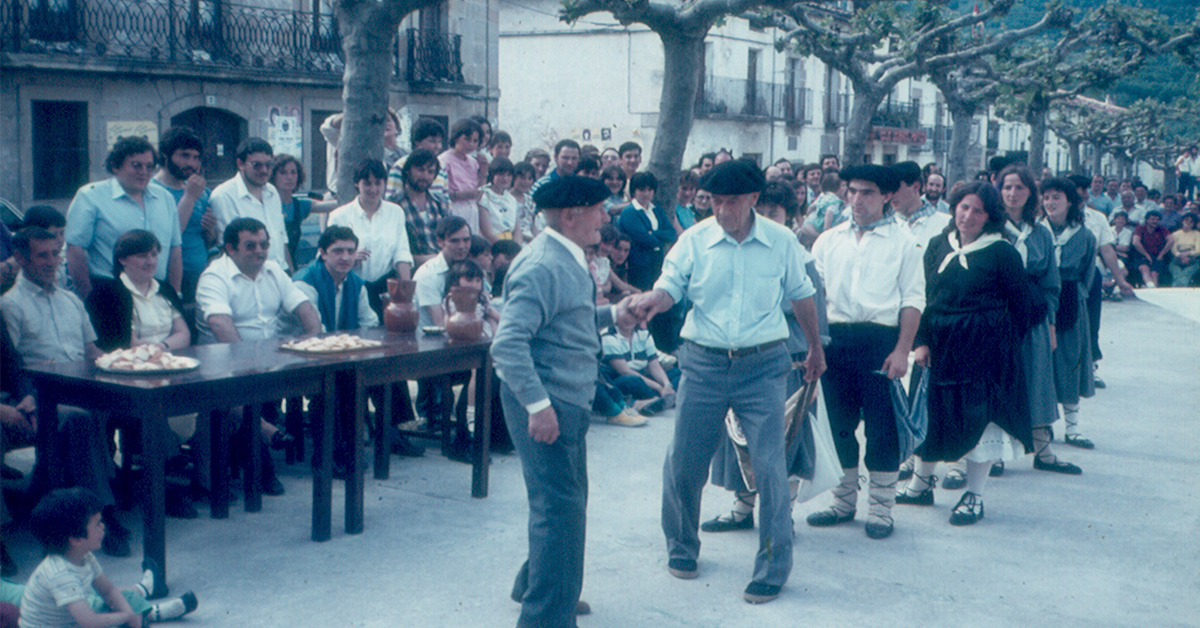Basque ethnography at a glance
Any research into the traditional culture using the methodological groundwork of social and humanistic disciplines pivots on data sources (written, images, observations and oral information). Obviously, oral data need people and their testimony, whose stubborn regularity allows the researcher to use complex qualitative analysis to reach scholarly conclusions. Invaluable collective scholarly knowledge that can address such a wide range of areas as festive celebrations, dances, music, singing, musical instrument, apparel, culinary heritage, rituals, trades or work, etc.
As we get older and become nostalgic for the past, I have noticed that hundreds of people of all ages and backgrounds have acted as witness of different social facts. Starting in the family, that mushroomed and spread to numerous people and their spheres who have selflessly provided important testimony. They are the lead players – along with the kindness of their families – of a myriad of research where their personal contribution has been eclipsed or silenced, but is embedded in the collective memory of tradition, and structures the motely contribution of their personal or group knowledge and testimonies. The process is necessary to rebuild or reformulate different studies or perspective of the traditional culture from different disciplines, methodologies and techniques. However, we cannot overlook the invaluable contribution of those informants who make our work possible thanks to their conclusions silenced or watered down in the set of the researchers’ conclusions.
The numerous interviews – conducted with no therapeutic or selfless spirit and with a certain academic experience in the field of dependency – reveal that the collective memory not only benefits the recipient or researcher, but also those providing the information, by enabling support when working or evoking their crystallized memory (life histories or recall technique), addressing their demands to pass on accumulated knowledge to the people around them or to acquire a certain prominence and self-esteem, give value to their community and personal experiences (empathetic and communicative pedagogy) or, latently, feel involved in constructing and disseminating the traditional culture. An intangible and disembodied heritage that we must not forget is underpinned by a myriad of people who have lived, experience and will live their own realities, and is thus usually reflected by their selfless and emotive testimonies.
An effective means to reconstruct the specific traditional ways of life of the people interviewed or subconsciously; it contributes to fostering the personal reminiscing (customs, habits, songs, etc.) so present in the long-term or crystallized memory that, in those cases, is usually bolstered over the so-called immediate or short-term one. Therefore, while always ensuring scrupulous care and based on absolute respect, we must ensure we actively listen to their interesting tales (heard over and over again by their nearest and dearest) and latently, by influencing the social, personal, emotional, mental and physical state for which many of the key players or relatives thanked us profusely. We wish to here express our great gratitude: Bihotz bihotzetik mila esker!
Josu Larrinaga Zugadi – Sociologist



